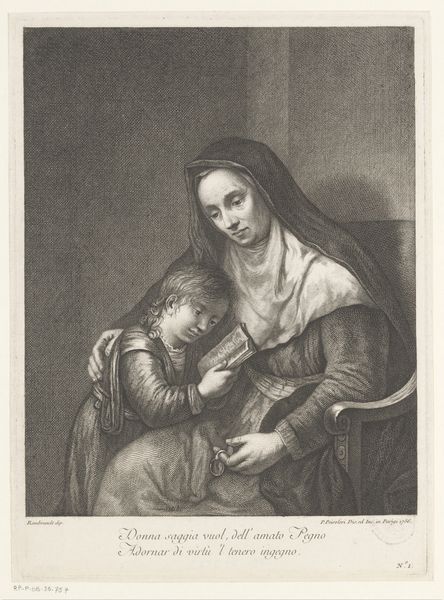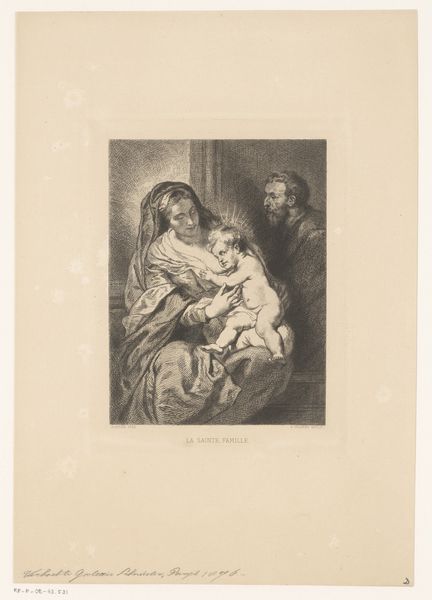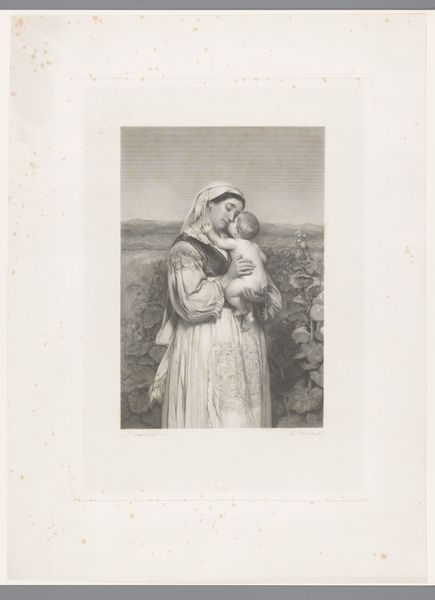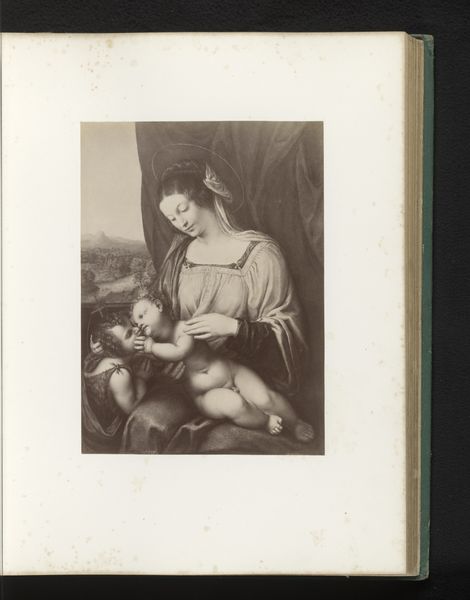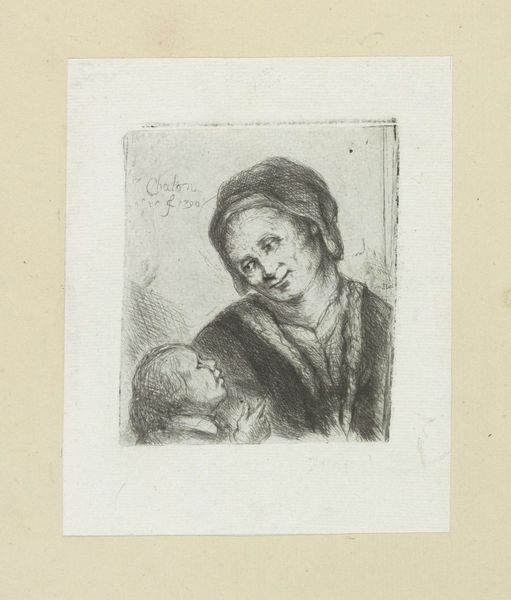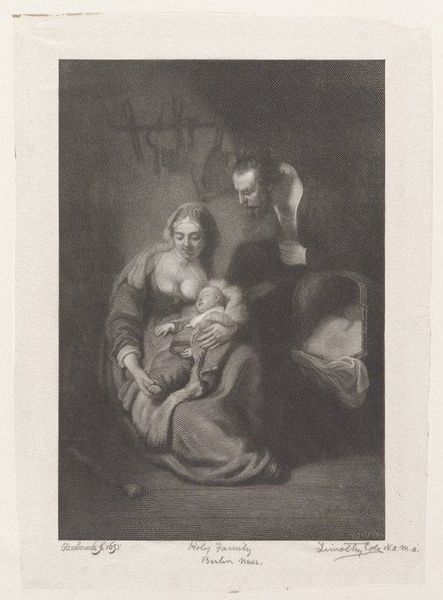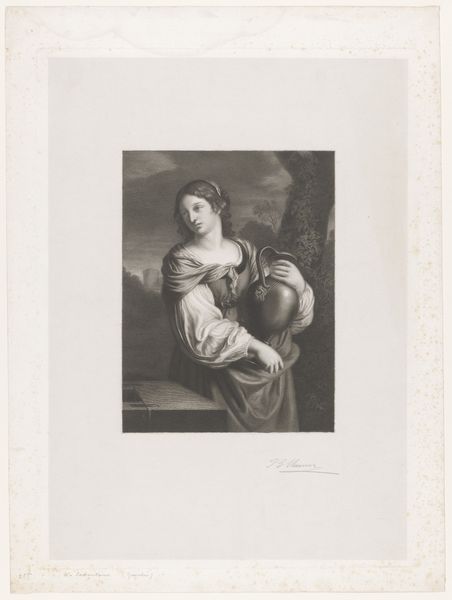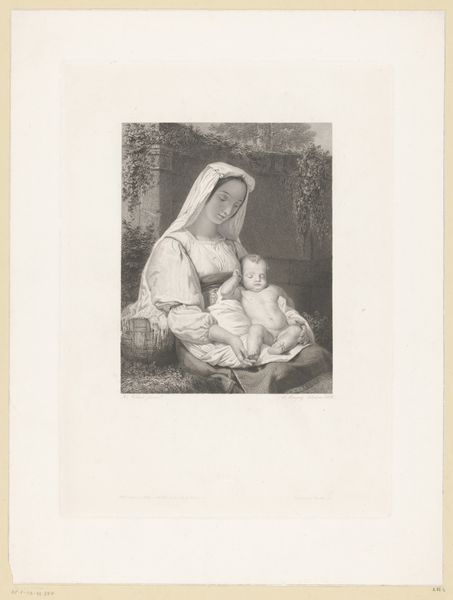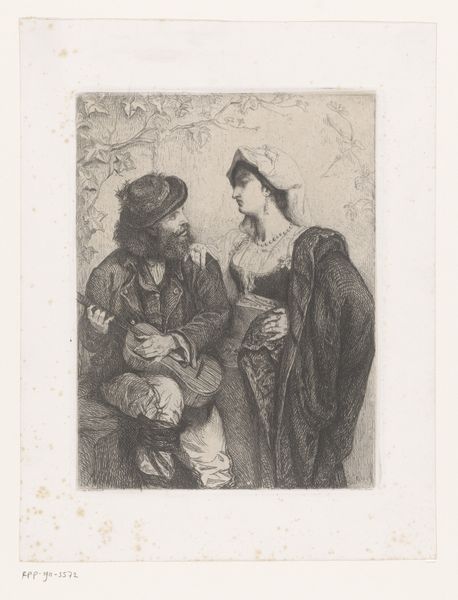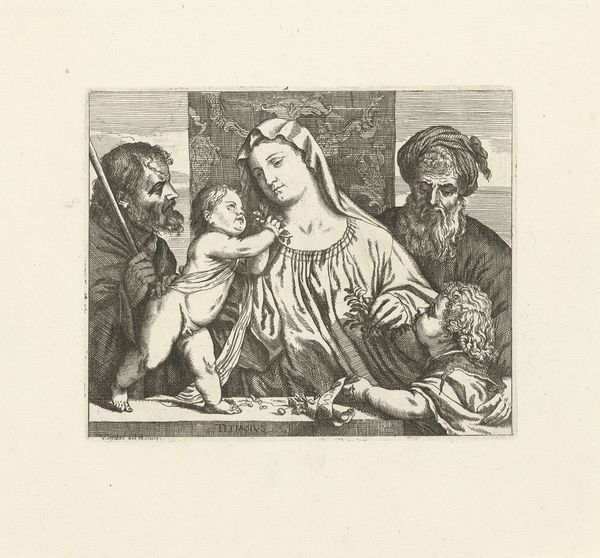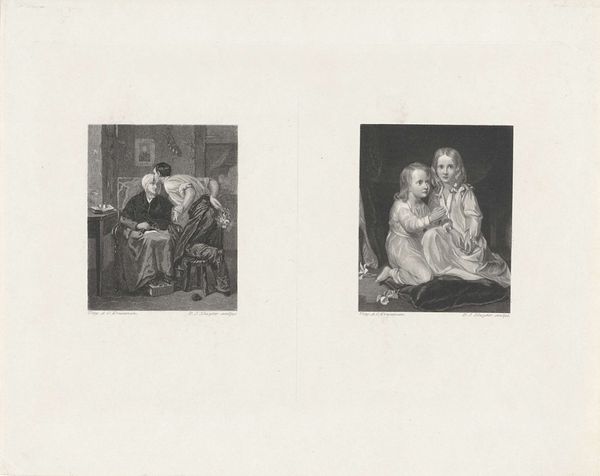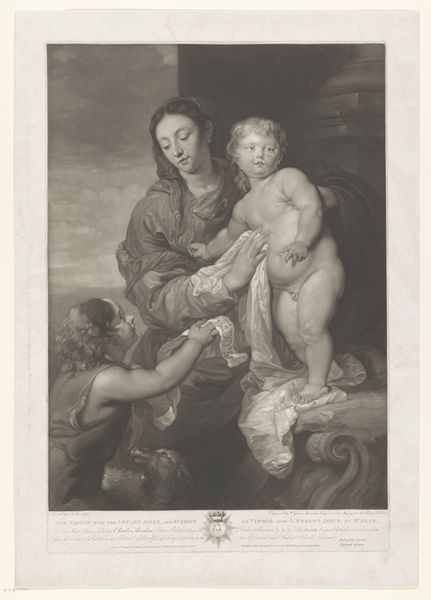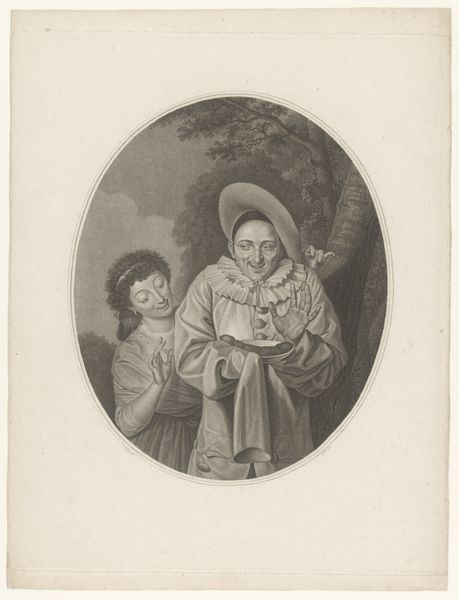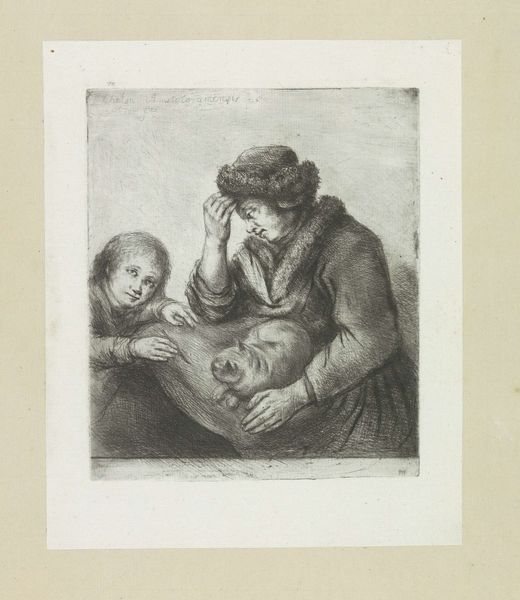
Portret van een paar als Oud-Testamentische figuren, genaamd 'Het Joodse bruidje' 1861
0:00
0:00
christiaanlodewijkvankesteren
Rijksmuseum
drawing, print, charcoal
#
portrait
#
drawing
# print
#
charcoal drawing
#
genre-painting
#
charcoal
Dimensions: height 215 mm, width 301 mm
Copyright: Rijks Museum: Open Domain
Editor: This is Christiaan Lodewijk van Kesteren's "Portret van een paar als Oud-Testamentische figuren, genaamd 'Het Joodse bruidje'," made in 1861 using charcoal, as both a print and drawing. There is something in the couple’s body language that gives me a sense of unease, though I can't quite put my finger on it. How do you read it? Curator: The unease is understandable. While ostensibly portraying a loving couple referencing Old Testament figures – a common romantic trope – the symbolism evokes deeper cultural memories. Look at the man's hand placement. Does it strike you as tender or possessive? Editor: Perhaps more possessive... his grip looks tight and directional. Curator: Exactly. Consider also how the “Jewish Bride” title became attached later to a Rembrandt painting with a similar intimate embrace. There, too, the male figure's gesture has sparked debates. Van Kesteren's echo of this potent image links back into that historical resonance. How might viewers in 1861, saturated with prevailing cultural attitudes toward relationships, read this visual cue? Editor: I imagine that possession was likely seen as something desirable, then... yikes. It’s unsettling to see how symbols can shift and retain their weight across centuries. Curator: Precisely! The seemingly simple act of touch, laden with historical baggage and cultural assumptions, shapes the psychological landscape of this image. The work is fascinating, revealing shifting societal norms embedded in visual cues. Editor: It is a potent reminder to look beyond face value and to engage more critically with our visual culture. Curator: Agreed. Understanding the longevity of symbols offers fresh perspective when considering continuity and change through the art of the past.
Comments
No comments
Be the first to comment and join the conversation on the ultimate creative platform.
